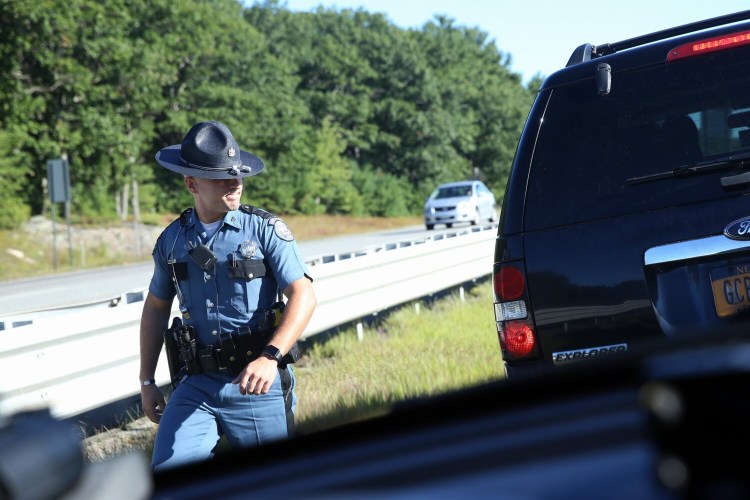This day has been coming for a long time, but no doubt some people will be surprised.
From now on, drivers are forbidden to use hand-held devices like smartphones or tablet computers when they are behind the wheel, except in emergencies. Violators face a $50 fine for a first offense and $250 for each subsequent offense. Police are on the lookout, and departments are instructing officers to issue tickets, not warnings.
The ban has been in the works for 20 years, starting in 1999, when then-Lewiston Rep. Gerald Bouffard submitted a bill to ban the use of hand-held cellphones by drivers. That was long before the introduction of the phones we have today. Although you can still use them to make calls, they also do much more, delivering the distracting three-ring circus of email, social media and even television shows right into the cockpit, tempting drivers in every car that hurtles down the highway.
Bouffard’s bill did not pass, but similar legislation has been introduced every two years, coming close to approval in 2017, when the bill passed but could not overcome a veto by then-Gov. Paul LePage, who sneered that this proactive safety measure was “social engineering.”
The new law, sponsored by Sen. Bill Diamond, D-Windham, finally got on the books when it was signed by Gov. Janet Mills.
What changed? Experience proved what common sense should have made clear long ago: It’s not safe to share the road with distracted drivers.
The Maine Department of Public Safety said distraction is a factor in up to 40 percent of the 35,000 crashes each year. The department also said distraction was a contributing factor in making 2017 the deadliest year on Maine roads in a decade.
It’s easy to see why – a lot can happen while a driver’s eyes are on their phone. In the five seconds it takes to check a text or refresh Facebook, a car can travel the length of a football field.
The danger is so obvious and the potential outcomes so severe, you might think that a warning would be enough. But like drunken driving, appealing to people’s sense of self preservation is not enough. For some reason, the risk of dying on the road or killing someone else is not as motivating as the prospect of a traffic ticket.
So far, 19 other states and the District of Columbia have passed similar distracted-driving laws, and others should follow. Brilliant engineers have designed smartphones that monopolize your attention, no matter what else is happening around you. There is debate about whether excessive cellphone use can be described as an addiction (it’s not listed as one in the Diagnostic and Statistical Manual of Mental Disorders), but there should be no debate that using one when behind the wheel won’t make you a better driver.
The day has finally arrived when it’s illegal in Maine to play with your phone while you are driving. Our sympathies go out to anyone who finds out about this change the hard way, but we will all be better off as a result.
Send questions/comments to the editors.



Comments are no longer available on this story